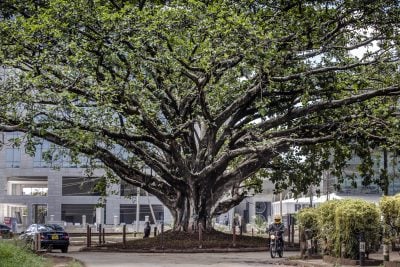In March, Zimbabwean private equity firm Takura Capital Partners acquired a majority stake in distressed agro-business Interfresh Limited, shortly after snapping up a 16% stake in diversified construction firm Radar Holdings.
A beneficiary of funding from the UK’s development investor CDC Group, Takura Capital was established in 1997 to target growing and struggling companies. Since then the investor has spread its wings throughout the Southern African Development Community.
Over the years, the fund has grown and revived companies including bread-maker Lobels, which nearly closed in 2011 due to financial difficulties, and Cairns Holdings, a former listed agro-manufacturer that went insolvent in 2012.
In 2015, Takura Capital invested in the country’s largest beef producer Montana Meats, and Talwant Trading, the franchisee for Fruit and Veg City Africa International.
Now, amid the regional economic havoc wrought by the Covid-19 pandemic, the firm and others like it see a renewed opportunity to snap up companies which it believes have a promising future despite current headwinds.
Despite Zimbabwe’s huge economic challenges, they believe the country offers immense opportunities for discerning private equity investors given gaping infrastructure and energy needs alongside emerging opportunities in manufacturing, mining and agriculture.
Takura Capital, together with Spear Capital, a medium-sized investor in consumer-based businesses, healthcare and education, and Vakayi Capital, which focuses on SMEs, form the local backbone of an expanding industry of private equity investors, many of them foreign, that spy opportunities amid the challenging Zimbabwean economy.
Untapped potential
The potential of private equity remains largely untapped in Southern African countries outside of South Africa. Three hundred and sixty-four deals worth $4.4bn were recorded in the region between 2015 and 2020, according to the African Private Equity and Venture Capital Association’s 2020 Annual African Private Equity Data Tracker, released in March, but 69% of the deals and 64% of the deal value were registered in South Africa alone.
The Covid-19 pandemic has not helped matters. Private equity final closes across Africa as a whole dropped to $1.2bn in 2020 from $3.8bn in 2019 as the pandemic hit. The region’s economies have been ravaged – Zimbabwe’s GDP shrank by 8% last year, South Africa shrank by 7% and Botswana by 8.3%.
Still, there have been green shoots. The number of deals recorded across the continent rose to a high of 255 from 230 in 2019, with a value of $3.3bn and with early stage investments representing 49% of the total volume.
About 55% of the deals reported in 2020 were in technology-enabled companies, as digital innovation continues to gain traction across Africa. Southern Africa’s economies are expected to partially bounce back this year as vaccinations are gradually introduced, with Zimbabwe expecting growth of 3.3%, Botswana 7.5% and South Africa 3.1%.
Even in a tough environment, some firms have managed to engineer successful fundraisings. Secha Capital, a South Africa-based investor that invests in SMEs throughout the region, closed funding in 2020 of $30m. Its investments include energy startup IG3N and Cultura Fresh, a hydroponic farm, among other businesses. Meanwhile, Moshe Capital, a South Africa-based investor, launched a $23.5m investment fund targeting established businesses.
Chai Musoni, chief executive and co-founding partner with Patrick Makanza of Vakayi Capital, says there remains a huge demand for capital among small-scale businesses. While listed firms and other larger corporations find it easier to access financial support, smaller unlisted companies struggle, he says. Vakayi is reviewing a pipeline of about 15 companies with a view to investing $5m-10m.
“Different private equity funds have different strategies; our investment is from $100,000 to $1m per investment. Other funds may do larger deals ranging from $1m to as much as $5m or even more. There is a great future because as long as there are businesses the demand for capital will always be there. Private equity funds are more flexible in structuring investments and have greater risk appetite than banks,” he says.
As a provider of early stage growth capital, he sees lots of business requiring startup capital.
“It’s a risky part of the business growth cycle but can be managed by investing through innovative instruments. Currently the universe of funds in Africa and Zimbabwe especially is limited, so the strategies are limited. Private equity funds consider the quality of the management and the business model and also scalability to indicate the prospects of growth for a business.”
Nevertheless, challenges remain beyond the region’s sluggish economic growth. The AVCA Data Tracker highlights the region’s inconsistent foreign exchange policies as a significant bar to development.
“Foreign exchange risk is acute in this part of the world. The cost of hedging tends to be punitive and therefore, if investing in a hard currency, one ought to be mindful of potential erosion in value on account of local currency devaluation. To a large extent this drives the quest for export-oriented business or business that can offer US dollar indexed pricing.”
Furthermore, political instability around Southern African elections can upset the predictability of business cycles for private equity portfolio companies, say the report’s authors.
“The political landscape in the region is characterised by instability in and around presidential election times, a phenomenon that adversely impacts business for at least two concurrent years. There is, therefore, commercial merit to supporting regional businesses; not just as a natural FX hedge but to mitigate against political risk.”
An economy in recovery?
Nowhere is this more true than Zimbabwe. In April, Zimbabwean finance minister Mthuli Ncube launched a global roadshow to win over investors, highlight policy changes and pitch the country as “an economy and investment destination in recovery”. In a sign that the country is keen to attract regional capital, the minister met with South African fund manager Allan Gray in a meeting publicised on Twitter.
There are plans to take the roadshow to London and New York, but the country’s messaging on investment remains mixed – in the same month, Zimbabwean President Emmerson Mnangagwa vowed to take unspecified action against “sharks” in the financial services industry that he accused of profiteering. Until policy uncertainties are ironed out, the country’s investors and companies will continue to face a rocky road.
Want to continue reading? Subscribe today.
You've read all your free articles for this month! Subscribe now to enjoy full access to our content.
Digital Monthly
£8.00 / month
Receive full unlimited access to our articles, opinions, podcasts and more.
Digital Yearly
£70.00 / year
Our best value offer - save £26 and gain access to all of our digital content for an entire year!
 Sign in with Google
Sign in with Google 



